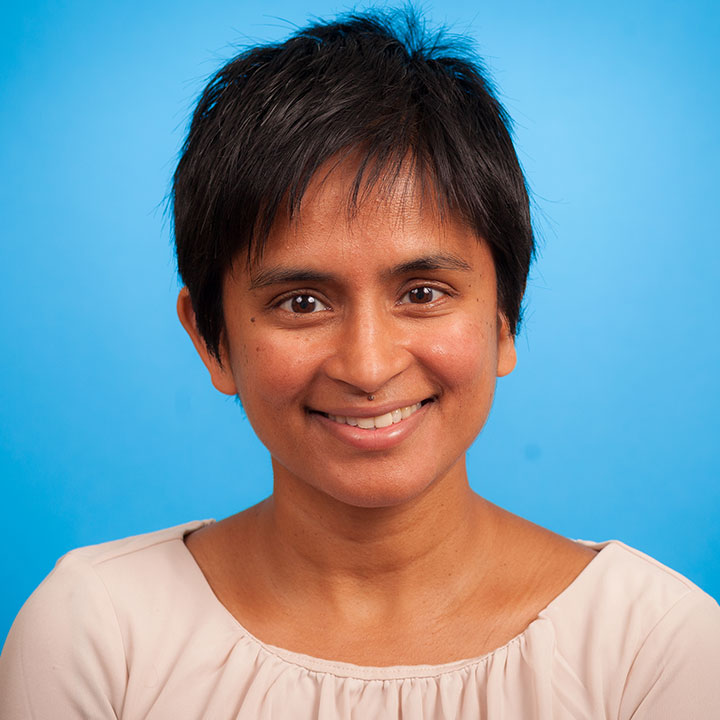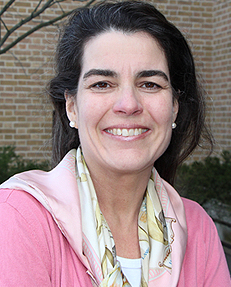Ten research teams led by IHPME faculty have received funding from the Canadian Institutes of Health Research (CIHR) to address the COVID-19 pandemic in Canada and globally.
“Now more than ever, our community’s research expertise is critically needed to support Canada’s pandemic recovery,” said Professor France Gagnon, Associate Dean of Research at DLSPH.
“Our School’s broad expertise — including supporting at-risk populations, public health surveillance, health informatics and data science, and beyond — will inform decision-making and planning at national and international levels,” said Gagnon.
The Government of Canada, CIHR and provincial partners launched the second call of the rapid research funding competition in mid-April. On June 25, the Honourable Patty Hajdu, Canada’s Minister of Health, announced that a $109 million investment would support 139 research teams to accelerate measures to mitigate the rapid spread of COVID-19 and its negative consequences on people, communities and health systems.
“I’m impressed with the outstanding ability of our faculty to pivot their research portfolios and apply their talents and expertise towards addressing the COVID-19 pandemic,” said Professor Audrey Laporte, Director of IHPME.
“Looking at the number of successful IHPME projects awarded and the quality of research underway, it’s clear that our community is already shaping Canada’s pandemic response and having a tangible impact on health systems,” said Laporte.

Professor Monika Kastner received funding for her project, Social frailty interventions that can best support vulnerable older adults during the COVID-19 pandemic: A rapid review. She explains that social vulnerability is one of the greatest challenges in caring for older adults and the health care system today, particularly during a public health crisis such as the COVID-19 pandemic.
“Imagine an older adult with a history of stroke and recent hip fracture who needs help with transportation and housework, but doesn’t have any family supports or resources to carry out these daily activities. They become socially isolated or unable to leave their home,” said Kastner, Associate Professor at IHPME.
“Now imagine how this older adult might cope with the COVID-19 pandemic that may require isolating and distancing measures. Public health policies could have important negative consequences for socially frail older adults, particularly if in place for an extended period of time,” said Kastner, who is also Research Chair in Knowledge Translation and Implementation at North York General Hospital.
Her work will address the urgent need to support socially frail older adults by identifying interventions that can help reduce, reverse or prevent social frailty during difficult and stressful situations such as the COVID-19 pandemic.
Professor Daniel Grace is studying another potentially at-risk population in his study, Engage-COVID-19: A mixed methods study of biomedical, behavioural, and psychosocial aspects of the COVID-19 pandemic among gay, bisexual, and other men who have sex with men in Canada.
This mixed methods research is necessary, says Grace, because failure to respond to the health and wellness needs of these communities may have significant negative effects on COVID-19 outcomes and exacerbate existing health disparities.
“This funding will support our interdisciplinary research in Vancouver, Toronto, and Montreal, and is only possible because of our community and research partners across Canada. As part of the Engage Cohort Study, our research will involve SARS-CoV-2 antibody testing, COVID-specific quantitative survey questions, and in-depth qualitative interviews. We will explore the direct and indirect impacts of the pandemic on sexual and gender minority men, including how COVID-19 is impacting mental health outcomes, experiences of loneliness, sexual behaviours, substance use patterns, and access to essential healthcare,” said Grace, Assistant Professor at DLSPH.
A team of researchers is focusing on the effects of COVID19 on individuals not diagnosed with coronavirus including those living in remote regions of British Columbia and Ontario, and First Nations peoples. Professors Murray Krahn and Girish Kulkarni are leading the study, The Response of Provincial Health Systems to COVID-19: Service Provision and Costs Across Health Sectors, First Nations and other populations. They will also examine costs and resource use by COVID19 patients.
The research will measure how health system changes — including the cancellation or delaying of care — has impacted hospitalizations, physicians services, home care, long-term care, and other resources. The research team will study data from B.C. and Ontario that describe almost every interaction with the health system, providing a “population level” look at the health system.
“Looking at health systems as a whole will allow us to plan for system stresses related to COVID-19 resurgence and future pandemics, and ensure that we can meet the needs of Canadians even under conditions of health system strain,” said Krahn, who is based at UHN.

Professors Sharmistha Mishra and Jeff Kwong along with a team of epidemiologists, mathematical modellers, statisticians, clinicians, microbiologists, and public health officials from B.C., Alberta, Manitoba and Quebec are developing a population- and place-specific response to the pandemic.
Their project, Evaluating the differential impact of what we have done, as we prioritize what to do next: a multi-provincial intervention modeling study using population-based data, aims to produce more focused and adaptive public health interventions. Early COVID-19 predictions were dire largely because of limited local data, they explain.
During the initial months of the response, there was an implicit assumption that everyone was at equal risk, regardless of conditions that may lead to differential risks of transmission (e.g. experiencing homelessness or living in long-term care facilities) and of severe outcomes (e.g. age, health conditions). These assumptions informed the early part of the public health response.
“As we enter the next phase and prepare for future waves of the epidemic, we have an opportunity to be more specific with our interventions if we can quickly learn from how well our public health measures worked or did not work for different subgroups and between provinces, using a growing wealth of data now available,” said Mishra, Scientist at St Michael’s Hospital’s Li Ka Shing Knowledge Institute.
Professors Angela Cheung and Margaret Herridge are co-leading a research team of more than 100 investigators across the country in the Canadian COVID-19 Prospective Cohort Study (CANCOV), which is the first in Canada to provide a comprehensive evaluation of early to one-year outcomes in 2,000 patients with COVID-19 infection and their family caregivers.
“We are just beginning to learn some of the longer term outcomes of patients with COVID-19 infections. This project will help us better understand the spectrum of disease across Canada and the immunologic and multi-omic predictors of the long-term complications of COVID-19,” said Cheung, a staff general internist at University Health Network and the KY and Betty Ho Chair of Integrative Medicine at University of Toronto.
Professor Darrell Tan is leading COVID-19 Ring-based Prevention trial with Lopinavir/ritonavir (CORIPREV-LR), a randomized controlled trial exploring a potential prevention strategy for COVID-19. Using a method called post-exposure prophylaxis (PEP), people with recent exposure to the virus will take a short course of an oral medication called lopinavir/ritonavir to see if it prevents infection.
“Engaging the public in rigorous clinical trials about COVID-19 prevention is critical to addressing the epidemic and starting to normalize society. The trial will study whether a safe, existing antiviral drug, can help prevent COVID-19 in close contacts of confirmed cases,” said Tan, Associate Professor at IHPME who is based at Unity Health Toronto.
“If our trial shows it to be effective, it could be immediately put to use in Canada and around the world, constituting a breakthrough in pandemic control,” said Tan, who is working with a team of Canadian experts, many of whom served on the frontlines of SARS, MERS, H1N1, Ebola, and HIV.

Professor Douglas Lee is leading a study called, Improving Canadian Outcomes Research on the Novel SARS-CoV-2 using Analytics: the CORONA Consortium. It will examine people living in Ontario and Alberta to determine who is most at risk of developing COVID-19, if cardiovascular or diabetes medications can predispose patients to the infection, and determine the impacts of the major changes in healthcare that were instituted as a response to the pandemic.
“This collaborative effort between Ontario and Alberta will utilize high quality databases to tackle the challenge of COVID-19 using data science,” said Lee, Professor at IHPME, cardiologist at UHN’s Peter Munk Cardiac Centre, and ICES Scientist.
Professor Amol Verma is co-leading a study, The COVID-19 Hospital Analytics Laboratory: Improving the Clinical, Organizational, and System Response to COVID-19, with Professors Fahad Razak, Angela Cheung, Margaret Herridge, Muhammad Mamdani and Laura Rosella.
The team will expand the use of detailed clinical data to improve understanding and prediction of clinical outcomes in patients hospitalized with COVID-19 and study how the organization of hospital care in the setting of COVID-19 affects patient outcomes.
“This funding will establish one of the largest hospital-based COVID-19 research networks in the world,” said Verma.
“With leadership from numerous IHPME faculty, we will leverage expertise in data science, health services research, clinical epidemiology, public health, and quality improvement to inform Canada’s pandemic response and contribute globally to knowledge about COVID-19 and its effects on hospitals and health systems.”
Professor Andrea Gershon is co-leading the project, CovidFree@Home: Development and validation of a multivariable prediction model of deterioration in patients diagnosed with COVID-19 who are managing at home with co-principal investigators, Drs. Robert Wu and Eyal de Lara.
Their team of health-care workers, patients, researchers and computer scientists will expand on their existing smartphone application that supports people isolating at home after a positive COVID-19 test by reporting symptoms to their physician. Sensor data will provide large volumes of objective data that can be used to build accurate real-time machine learning models for predicting who needs to go to hospital.
“Our diverse multidisciplinary research team feel very privileged to have this opportunity to do something positive during these very trying times,” said Gershon, Associate Professor at IHPME.
“We hope that this research will help improve the care of COVID-19 patients recovering at home, and in general, help advance the field of remote patient monitoring.”
 Professor Astrid Guttmann is leading the project, Deferred Care Outcomes in Canadian Children and Youth: Measuring and Mitigating Risk during COVID-19.
Professor Astrid Guttmann is leading the project, Deferred Care Outcomes in Canadian Children and Youth: Measuring and Mitigating Risk during COVID-19.
Early data suggest that children are less likely to be directly affected by COVID-19 compared to adults, but may suffer important health implications related to efforts to control the pandemic, such as missed immunizations or newborn primary care visits. This study will examine health data systems in Ontario and Manitoba to provide a robust and timely understanding of whether such responses to the pandemic have negatively impacted the health of children in these provinces.
Professor Daniel Werb is leading the project, Rapidly assessing the impact of the COVID-19 pandemic and response on clinical and social outcomes, service utilization, and the unregulated drug supply experienced by people who use drugs in Toronto.
This project will use a Canadian cohort of people who inject drugs that links to individual clinical data to assess people’s clinical outcomes, including COVID-19 diagnosis, overdose, loss of access to addiction treatment, and the severity of other health conditions to their self-reported behaviours. This will enhance understanding of how the COVID-19 pandemic is directly affecting this vulnerable group, and identify those at highest risk of both COVID-19 and overdose, and how these risks interact.
Related News

Sign up for IHPME Connect.
Keep up to date with IHPME’s News & Research, Events & Program, Recognition, e-newsletter.
Subscribe to Connect Newsletter
Get in Contact
Communications
Marielle Boutin
Email Address: ihpme.communications@utoronto.ca





